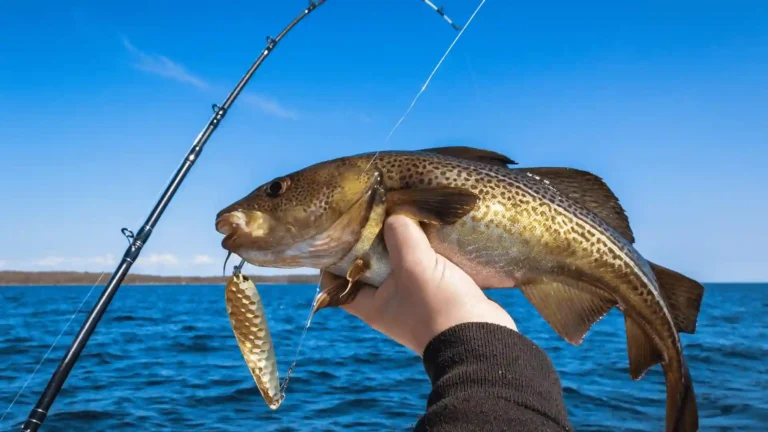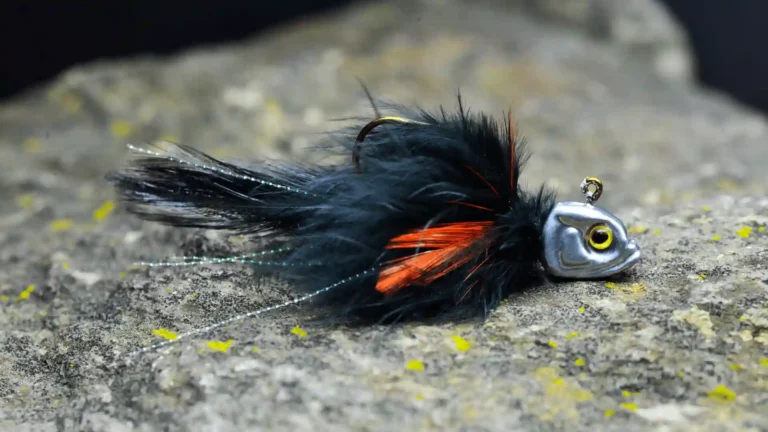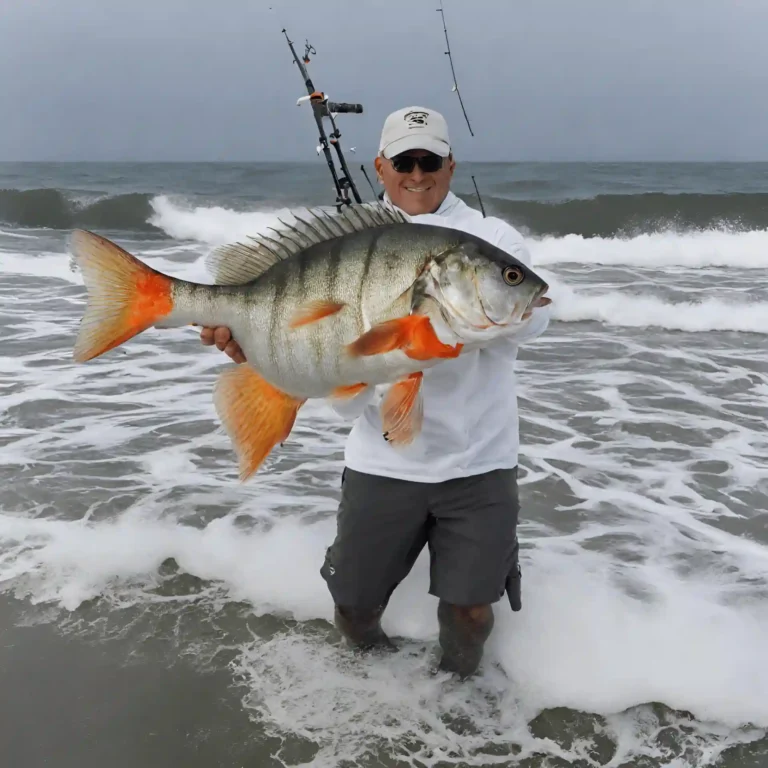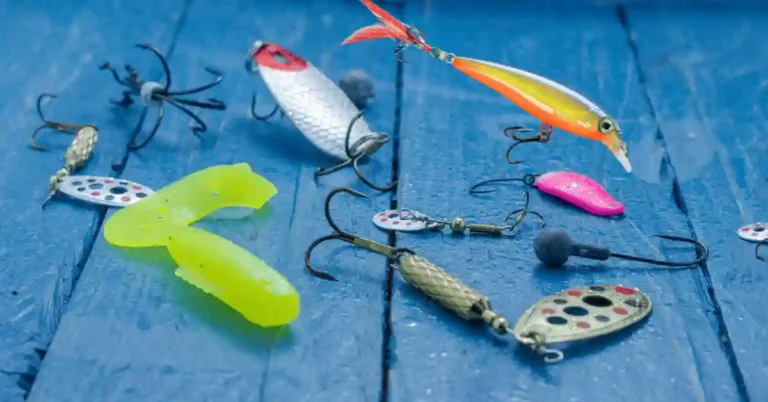Anise Oil For Fishing: The Ultimate Weapon for Success
Anise Oil For Fishing: The Ultimate Weapon for Success
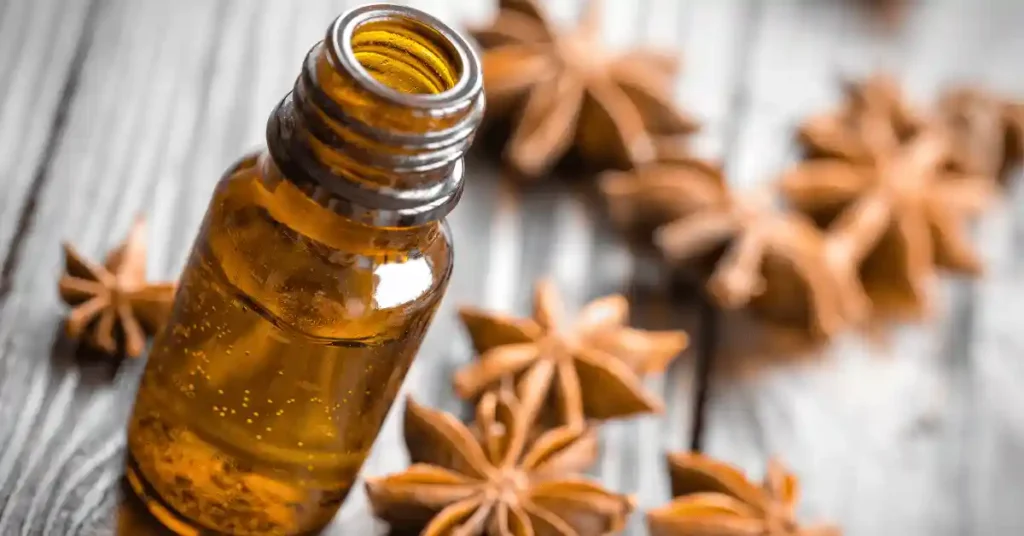
When it comes fishing, anglers always seek new tactics and techniques to gain an advantage over their elusive underwater targets.
While most anglers focus on factors like bait presentation, lure selection, and fishing techniques, one often overlooked aspect is the power of scent and taste. This is where anise oil comes into play.
Anise oil is a big hit in fishing shops. You’ve likely seen it if you’ve strolled through the fishing scent section. While some scents, like herring or shrimp, make sense, others smell sweet, like anise oil.
Why do anglers love anise oil so much? And more importantly, does it help catch fish? There are lots of rumors and stories swirling around.
Don’t worry. In this article, I will cover everything in this article.
What is Anise Oil?
Anise oil is a highly concentrated oil made from anise seeds.
Anise, scientifically known as Pimpinella anisum, is a plant commonly used as a spice and flavoring agent in various cuisines, especially in Asian and Mediterranean dishes.
The same plant gives us the distinct and familiar flavor of black licorice. The oil is extracted from the seeds using various methods, producing a potent and highly aromatic oil.
Why Is Anise Oil So Popular For Fishing?
Anise oil has become increasingly popular amongst fishermen due to its ability to attract fish with its scent. Its sweet licorice aroma is similar to natural bait and prey, containing anethole, a compound that fish are drawn to.
The oil can be used in various forms, including sprays, dips, and scents, making it versatile and easy to use. Moreover, anise oil is a natural alternative to artificial scents and chemicals that can harm the environment.
Using anise oil in your fishing routine can increase your chances of catching more fish, especially those attracted to the scent.
However, it’s important to note that anise oil should be used in moderation and conjunction with other techniques for optimal results.
As such, it’s a great addition to your fishing arsenal if you’re looking for a natural and effective way to attract more fish.
Do Fish Have A Sense Of Smell?
You may wonder if using anise oil to attract fish is effective. The short answer is yes – fish have a sense of smell! Some fish species, such as salmon and trout, have a more developed sense of smell than others.
Fish use their sense of smell to locate food, identify predators, and find mates. This means that using anise oil to mimic the scent of natural bait and prey can be a great way to attract fish to your fishing spot.
Fish rely on their olfactory system to detect and interpret chemical signals in the water. They have small openings in their snout called nares, similar to nostrils, allowing water to flow in and out.
As the water passes over sensory organs called rosettes, they analyze the chemical signature of the water and send signals to the fish’s brain, providing information about their surroundings.
However, there is a catch when it comes to scent-based attractants like anise oil. Fish can only accurately detect and interpret scents that can dissolve in water.
Unfortunately, oil and water don’t mix well, limiting the effectiveness of oil-based attractants. The scent contained in the oil may pass by the fish without them even noticing it.
Additionally, fish have receptors in their noses better suited to detecting smaller and simpler chemicals, such as amino acids.
These are the building blocks of proteins, and fish are naturally more attuned to the smell of food. Therefore, while anise oil may have a strong and pleasant aroma to humans, it may not have the same impact on fish.
The Myth of Anise Oil Attracting Fish
Now that we understand the limitations of scent-based attractants like anise oil let’s address the myth surrounding its effectiveness in attracting fish.
The popularity of anise oil among anglers can be attributed to a combination of anecdotal experiences and fishing legends. Somewhere along the line, an angler decided to try anise oil, had a successful fishing trip, and word spread, leading to its widespread use.
While anise oil may not be a magic bait or a game-changer, it does have some potential advantages. One of the key benefits of using anise oil is its scent-blocking effect.
When applied to lures or baits, the oil can mask and cover up human-scented amino acids, sunscreen, soaps, and other deterrents that may turn fish off.
This scent-blocking property can be particularly advantageous when fish are wary or easily spooked.
However, it’s important to note that using anise oil as a bait or attractant may yield little results. The scent-blocking effect is more effective when used as a complementary element to other proven fishing techniques.
It can provide that extra edge by making fish hold onto your bait for a little longer, giving you a better chance to set the hook.
How to Use Anise Oil for Fishing
If you decide to try anise oil, it’s essential to understand the proper ways to use it for fishing. Here are some effective methods:
1. Mixing Anise Oil with Baits and Groundbait
Anise oil works particularly well when mixed with baits and ground. Its strong aroma can enhance the attractiveness of particle mixes and method feeder mixes.
Add a few drops of anise oil to your preferred bait or ground, ensuring it is well-mixed and evenly distributed.
2. Enhancing Hemp Attraction
Hemp is a popular bait among anglers, known for its natural attraction to fish. By adding a few drops of anise oil to hemp, you can create an irresistible combination.
Whether you’re using hemp for spod mixes or as a standalone bait, anise oil can significantly enhance its effectiveness.
3. Infusing Anise Oil into Boilies
Many carp anglers swear by using anise or aniseed in their boilie mixes. Boilies are a staple bait for carp fishing, and infusing them with anise oil can make them even more enticing.
Add 2 to 5 ml (one teaspoon) of anise oil per kilogram of base mix when preparing your boilies. This will ensure a lasting aroma and attract fish to your bait.
4. Dipping Baits in Anise Oil
Dipping your baits is an easy and effective way to use anise oil. Baits such as sweetcorn, boilies, and pellets can be coated with anise oil to enhance their attractiveness.
While the scent may wash away relatively quickly in water, keeping the baits in a small tub with anise oil can help prolong the aroma.
5. Coating Lures with Anise Oil
Try coating your lures with anise oil to give them a longer-lasting aroma. Place your lures in a ziplock bag overnight, allowing them to absorb the scent.
This method ensures that the oil is evenly distributed and prevents wastage.
6. Applying Anise Oil to Fishing Gear
Remember to apply anise oil to your fishing gear as well. Hooks, lures, and fishing lines can accumulate human scent and deter fish. Applying a few drops of anise oil to your gear can mask these unwanted odors and increase your chances of success.
Lay out your gear on a cloth or towel and apply the oil using a dropper or soaking the equipment in a plastic bag filled with the oil.
Fish Species Attracted to Anise Oil
While anise oil may not appeal to all fish species, some are known to be particularly attracted to its scent. Here are a few fish species that have shown a positive response to anise oil:
Carp
Carp, being one of the most popular freshwater game fish, are known to be attracted to aniseed-based baits.
Anise oil can be a game-changer when targeting carp, especially when they are less active or hesitant to feed.
Catfish
Catfish have a keen sense of smell and are attracted to strong, smelly baits. Coating baits like sweetcorn, boilies, and pellets with anise oil can significantly increase their appeal to catfish.
The powerful aroma of anise oil can draw catfish in and entice them to take a bite.
Other Freshwater Species
While carp and catfish are the primary targets for anise oil enthusiasts, other freshwater species may also be attracted to its scent. Species like bream, tench, roach, and chub have been known to show interest in anise oil-treated baits.
Experimentation and local knowledge can help determine if anise oil is effective for specific fish species in your area.
How to make your own Anise Oil in Home
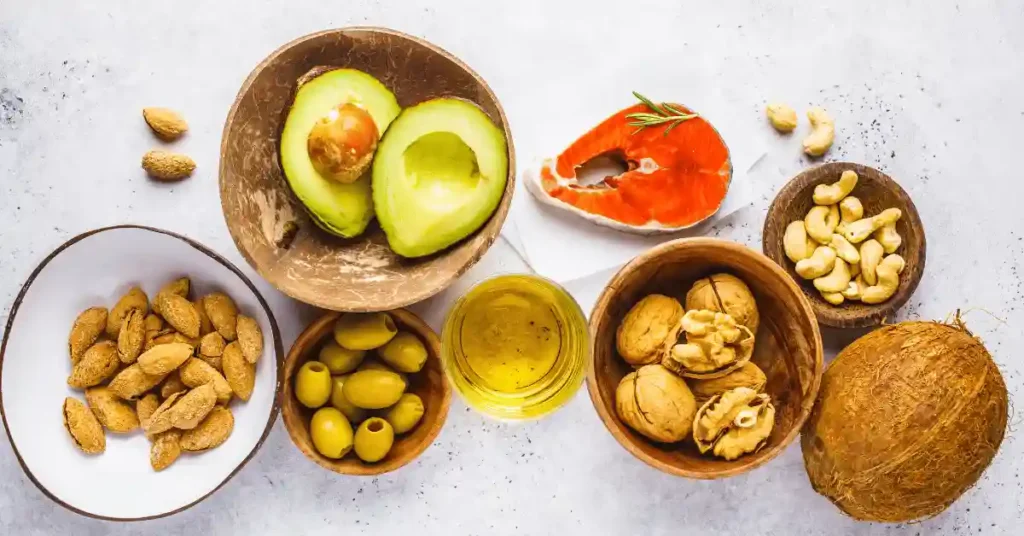
If you enjoy experimenting and want to take your fishing game to the next level, why not make your anise oil? Here’s a simple recipe to get you started:
Ingredients
• 1 cup anise seeds
• 2 cups carrier oil (such as olive oil or vegetable oil)
Instructions
Step 1. Grind the anise seeds using a mortar, pestle, or coffee grinder until they are finely crushed.
Step 2. Heat the carrier oil in a saucepan over low heat.
Step 3. Add the crushed anise seeds to the heated oil and stir well.
Step 4. Allow the mixture to simmer gently for 1-2 hours, stirring occasionally.
Step 5. Remove the saucepan from the heat and let the mixture cool.
Step 6. Once cooled, strain the oil using a fine-mesh sieve or cheesecloth to remove any solid particles.
Step 7. Transfer the strained oil into a clean, airtight container or bottle.
Step 8. Store the homemade anise oil in a cool, dark place for maximum freshness and potency.
Remember, homemade anise oil may have a different concentration and potency than commercially available options. However, it can still be a fun and cost-effective way to experiment with anise oil for fishing.
What Lures Are Best To Use With Anise Oil?
When using anise oil for fishing, one common question is what lures are best. The answer is that it depends on the type of fish you’re targeting and the fishing conditions.
However, soft plastic lures are generally a great option for anise oil use. This is because they can easily absorb and hold onto the scent of the oil, making them more attractive to fish. Lures resembling natural bait and prey can also be effective when paired with anise oil.
For example, using a soft plastic worm lure with anise oil can mimic the scent and appearance of a real worm, making it more appealing to fish.
It’s also worth noting that adding anise oil to your fishing gear, such as your hooks or fishing line, can also help attract fish to your bait.
Overall, the best lures to use with anise oil are those that can absorb and hold onto the scent and resemble natural bait and prey. Try experimenting with different lures and techniques to see what works best for you and the type of fish you’re targeting.
So, should You Use Anise Oil For Fishing?
Absolutely! Anise oil can be a great addition to your fishing routine, especially if you’re looking for a natural and effective way to attract more fish. It’s adaptable and easy to use, and many fish species are drawn to its sweet licorice scent.
However, using anise oil in moderation and in conjunction with other techniques is important for optimal results.
Remember to research the fish species you’re trying to catch and the scents they’re attracted to before using anise oil. Soft plastic lures are a great option for use with anise oil, as they can easily absorb and hold onto the scent.
To enhance their scent, you can also add anise oil to your bait mixes, hemp, boilies, glug, and dip baits. Incorporating anise oil into your fishing arsenal can increase your chances of catching more fish and having a successful fishing trip.
So, if you’re ready to try something new and exciting, try anise oil and see if it helps you reel in the big one.
Final Thoughts on The Anise Oil Advantage
While the effectiveness of anise oil for fishing may be subject to debate, there is no denying its potential advantages. When used with other proven fishing techniques, anise oil can provide that extra edge, enticing fish and increasing your chances of success.
Mixing it with baits, infusing it into boilies, or coating your lures, anise oil can transform your fishing experience.
As with any fishing tactic, it’s essential to keep an open mind and be willing to adapt to different conditions and fish preferences. While anise oil may not be a magical solution, it can be valuable to your fishing arsenal.
So, the next time you head out to the water, consider unlocking the secret of anise oil and discover the difference it can make in your fishing success.

Meet Ibrahim Khan, an avid angler and author in Fishing Teach. He shares his wealth of knowledge from his 16 years of experiences in fishing. His articles are a captivating blend of practical insights and thrilling tales that invite readers into the enchanting world of fishing.
Ibrahim’s guides are your go-to guide in the realm of fishing on this informational site. Hailing from a coastal paradise, Ibrahim’s passion for angling is the heartbeat of his life.


